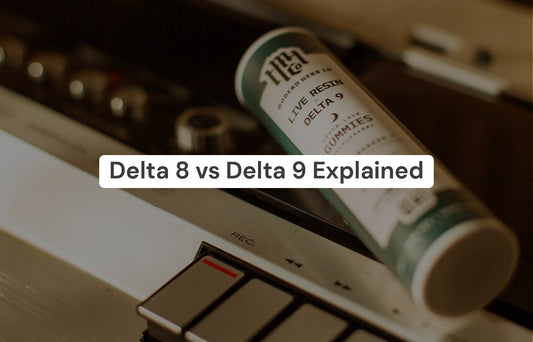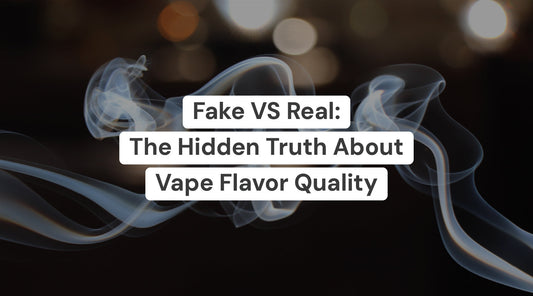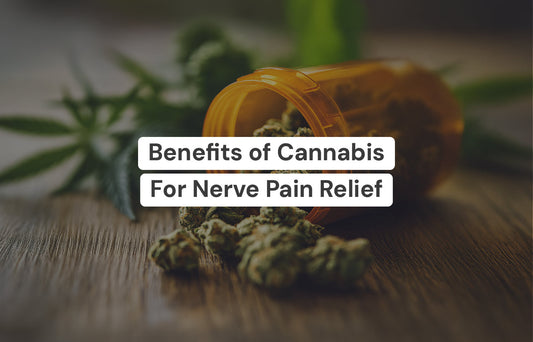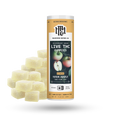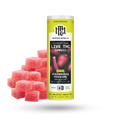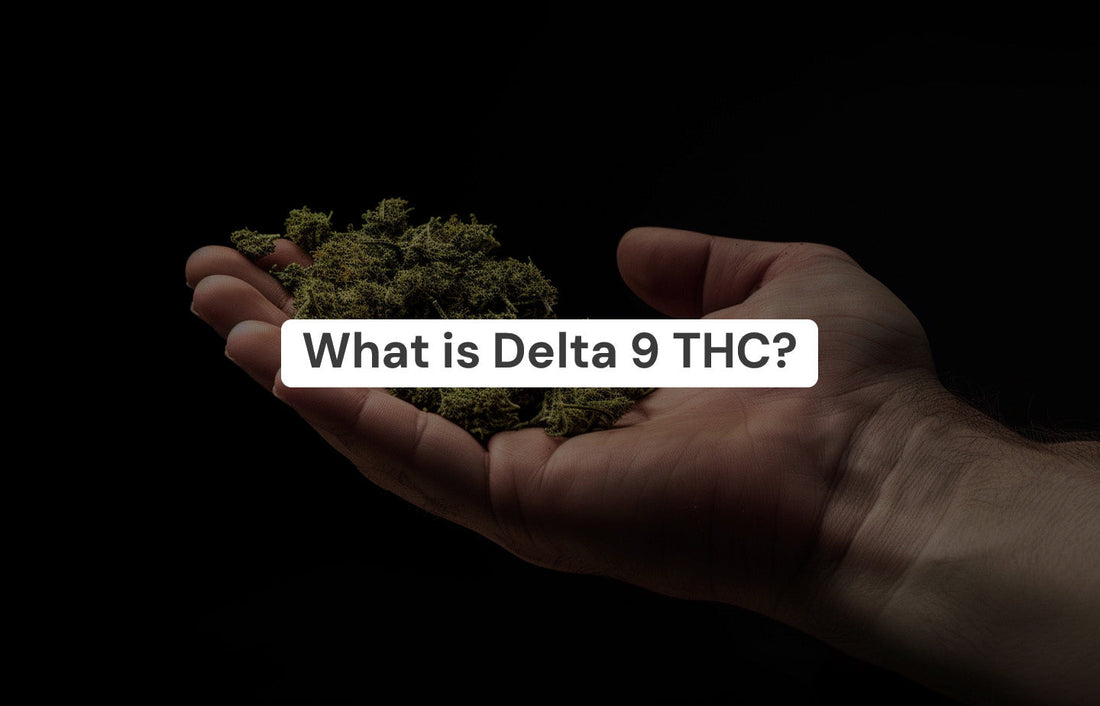
What Is Delta-9 THC? - The Complete Guide
What is Delta 9 THC? Is that what you are asking? You're in good company, bud! This captivating compound which is the most popular cannabinoid of all time, also known as delta-9-tetrahydrocannabinol, has piqued the interest of countless minds all over the world. Join us on an exhilarating voyage as we look into its secrets, decode its complexities, and uncover its significance in the captivating world of cannabinoids. Sit back, relax, and enjoy the ride, because we're about to set off on a journey of discovery!
Table of content
What Is Delta-9 THC?
The molecular makeup of Delta-9 THC, with its intriguing chemical formula C₂₁H₃₀O₂. Fun fact: it shares the same composition as its cousin Delta-8, except for a slight twist in the positioning of one carbon-carbon double bond.
Now, why all the fuss about Delta-9, you might ask? Well, it's the star of the show in THC research circles. With the lion's share of scientific scrutiny directed its way, Delta-9 stands as the most thoroughly studied and widely recognized form of THC. So, when it comes to THC, Delta-9 takes the spotlight, stealing the scene with its wealth of knowledge and familiarity.
History of THC
The story of THC traces back through the annals of time, woven intricately into the tapestry of human history. Picture this: millennia ago in ancient China, cannabis emerged as a versatile wonder, finding its place not just in medicine but also in everyday life, from sustenance to textiles.
As the winds of trade carried cannabis across continents, Europe and the Americas welcomed this botanical marvel with open arms. In the New World, hemp became both a commodity and a cultural fixture, with its fibers spun into textiles and even used as currency. Yet, beneath its utilitarian guise, cannabis held a deeper allure, with its recreational and ceremonial use gradually gaining traction.
Fast forward to the tumultuous 20th century, when the stage was set for a dramatic shift in perception. Enter the era of anti-drug campaigns, epitomized by the sensationalist fervor of films like "Reefer Madness," which paints cannabis as the harbinger of chaos and ruin.
The climax came in 1970 with the enactment of the Controlled Substances Act, branding marijuana as a Schedule I drug and casting it into the shadows of prohibition. Thus began the era of the "war on drugs," casting a wide net of enforcement that disproportionately ensnared communities of color.
Yet, even in the shadow of federal prohibition, the tide began to turn. State by state, the landscape shifted, with many embracing the therapeutic potential of cannabis and THC for medical and, in some corners, recreational use. But heed this caveat: while the tide may be turning, the legal landscape remains patchwork. Always consult the laws of the land before embarking on your THC journey.
Types of Delta-9 THC Products Available Online
In today's digital age, the options are plentiful when it comes to Delta 9 products. Online retailers offer a selection of Delta-9 THC Products, such as Delta 9 Edibles, Delta 9 Caramels, and Delta 9 Gummies. Some of the Delta-9 THC products offered by us at The Hemp Collect include Delta 9 Gummies, which come in Knockout, Anytime, and Daytrip, all of which have live resin.
The Delta 9 Gummies from us at The Hemp Collect are made with high-quality, hemp-derived Delta-9 THC and are available in a range of amazing strains. Come check out our website and all of the other goodies we have!
Hemp-Derived Delta 9 vs. Cannabis-Derived Delta 9:
It is important to understand the differences between hemp- and cannabis-derived forms of Delta 9 THC, especially with regard to legality, as laws differ based on the source of the compound.
Delta 9 THC serves as the primary psychoactive element in both cannabis and hemp plants. While hemp-derived Delta 9 THC products have gained popularity for their perceived perks, there are fundamental differences between these two categories.
When compared to cannabis, hemp usually has lower Delta 9 THC concentrations. Legally speaking, 0.3% or less of Delta 9 THC is found in industrial hemp and its derivatives, while portions of the marijuana plant can have much higher concentrations, up to 30% or more.
This discrepancy in Delta 9 THC content plays a pivotal role in the legal classification of these substances. While hemp-based products meeting the 0.3% threshold are federally permissible, cannabis remains federally categorized as an illegal Schedule I controlled substance. Consequently, states implement varying regulations concerning access to and the permissible forms of each type of Delta 9 THC.
Legal Status and Regulations
At the federal level, Delta 9 THC remains illegal throughout the United States. That being said, a new provision in the 2018 Farm Bill permits the lawful use and sale of some types of Delta 9 THC products created from hemp. While these products face minimal federal restrictions, individual states have their own regulations regarding the legality of THC-containing items. It's worth noting that legal cannabis and Delta 9 THC derivatives may exist in certain states, but such allowances differ across state lines. When it comes to potency and quality evaluations, the difference between Delta 9 THC derived from hemp and cannabis poses difficulties for regulatory enforcement.
Regulatory Challenges
Efforts to regulate Delta 9 THC products encounter complexities, especially concerning the differentiation between hemp- and cannabis-derived variants. Regulatory scrutiny involves analyzing potency, identifying impurities, and distinguishing between naturally occurring Delta 9 THC and synthetically converted forms, such as CBD.
Cannabis falls under stricter regulatory oversight due to its psychoactive properties. Controlled Delta 9 THC gummies follow the recommended size guidelines, guaranteeing a maximum of 100 milligrams of THC consumed at once and a maximum of 10 milligrams per serving.
Differences in Potency and Quality
One of the most significant distinctions between hemp- and cannabis-derived Delta 9 THC lies in potency. Hemp products must contain less than 0.3% Delta 9 THC, contrasting with the markedly higher concentrations found in certain cannabis strains commonly used in the production of CBD oils, tinctures, and edibles.
Furthermore, the sourcing of Delta 9 THC, whether natural or synthetic impacts quality considerations. Lab analyses evaluate the levels of active compounds to ensure compliance with legally specified limits, certifying products that meet stringent safety standards.
Delta 9 THC vs. Delta 8 THC
As cousins in the cannabinoid family, Delta 9 THC and Delta 8 THC share similarities yet possess distinct qualities. Due to its milder effects than those of its counterpart, delta 9 and delta 8 THC have been more popular recently. Let's unpack the nuances between these two compounds.
Abundance
Delta 8 THC is a distinct cannabinoid primarily sourced from the cannabis sativa plant, while Delta 9 THC is prevalent in both cannabis indica and cannabis sativa. While delta 9 THC is abundant in cannabis plants, delta 8 THC occurs naturally in smaller quantities, often necessitating its production from CBD.
Chemical Structure
The variance in chemical structure between delta 9 and delta 8 THC is notable. While delta 8 THC has a double bond on the eighth carbon chain, delta 9 THC has one on the ninth carbon chain. This structural disparity influences their interactions with the body and the resulting effects.
Potency and Effects
Though both cannabinoids induce psychoactive effects, delta 8 THC is recognized for its milder potency compared to delta 9. Delta 8 THC exhibits a weaker affinity for CB1 receptors, resulting in diminished psychoactivity relative to delta 9. Additionally, while both may offer support, delta 8 THC is associated with reduced potential adverse effects compared to delta 9.
Legality
Unlike delta-9 THC, delta-8 THC isn't classified as a controlled substance on the federal level, owing to its usually hemp-derived CBD source. This renders Delta 8 THC federally legal. However, while permitted in many states, its legality isn't uniform across the nation, necessitating awareness of local and state regulations prior to purchasing or using Delta 8 THC products.
THC vs. CBD
THC and CBD stand as two prominent cannabinoids within the cannabis sativa plant, each with distinct characteristics that merit exploration. Let's unpack the disparities between these potent compounds.
Potential Effects
A primary divergence between THC and CBD lies in their potential effects. THC exerts psychoactive effects, while CBD lacks such psychoactive properties. This dichotomy leads to divergent legal treatment, with THC subject to stricter regulations due to its psychoactive nature. THC's stronger affinity for CB1 receptors contributes to its psychotropic effects, contrasting with CBD's non-psychoactive nature.
Potential Side Effects
In terms of potential side effects, THC presents a spectrum ranging from minor to severe, including potential addiction risks. Conversely, CBD tends to induce minimal side effects, with a notably lower risk of dependency or abuse. This safety profile positions CBD as a favorable option for those seeking potential perks without the associated risks.
Drug Test Detectability
THC's detectability in drug tests, coupled with its prolonged presence in the body, contrasts with CBD's typically undetectable nature. However, caution is warranted, as CBD products containing trace amounts of THC may yield positive results on drug screenings. To mitigate this risk, opt for CBD-only products devoid of THC.
Legality
On the federal level, CBD enjoys legality when derived from hemp and contains less than 0.3% THC. Conversely, marijuana-derived CBD aligns with THC as a federally illegal Schedule I substance. State laws further complicate the landscape, with CBD legality varying across jurisdictions. To navigate this complex terrain, it's essential to familiarize oneself with local and state cannabis regulations.
As a result, while THC and CBD share commonalities as key cannabis constituents, their divergent properties and legal statuses underscore the importance of informed decision-making and compliance with applicable laws and regulations.
Potential Perks of Delta-9 THC
While health claims are off-limits, it's worth noting that Delta-9 THC is associated with certain potential benefits. Exploring these benefits sheds light on the compound's diverse effects. There is plenty of information on the internet that describes the potential benefits of Delta 9.
Delta-9 THC Side Effects
As with any substance, Delta-9 THC may come with side effects. Understanding these potential downsides is crucial for responsible usage and informed decision-making.
Where To Find The Best Delta-9 Products?
You can find the best Delta-9 THC products online from trusted brands like us at The Hemp Collect! Our Delta-9 products are manufactured with premium Delta-9 THC derived from hemp and undergo independent laboratory testing to guarantee potency and purity. Check out the Delta-9 products we have available, such as the Delta 9 Caramels and Gummies.
Our Delta 9 Gummies offer a discreet and easy way to experience the benefits of Delta-9 THC. They come in a variety of amazing strains. Whichever Delta-9 product you select, you can be sure that The Hemp Collect will provide you with an excellent, lab-tested product. Pick your favorite and enjoy the Delta-9 experience today!
Final Thoughts: Delta-9 THC
As a whole, Delta-9 THC emerges as a multifaceted compound, weaving together a tapestry of history and potential. Its storied past and promising prospects beckon both seasoned enthusiasts and curious newcomers alike to take the plunge into discovery and enlightenment. Whether exploring its potential possibilities or simply seeking a deeper understanding of its nuances, the world of Delta-9 THC invites individuals to embrace discovery and the myriad dimensions of this intriguing cannabinoid.
Delta 9 THC - Frequently Asked Questions:
Does Delta-9 Get You High?
Yes, the main psychoactive ingredient in cannabis and the one responsible for its desired effects is delta-9 THC.
Are Delta-9 and THC or CBD The Same Thing?
Yes, delta-9 THC is a type of THC, while CBD (cannabidiol) is a separate cannabinoid with different effects.
What’s The Difference Between Delta-9 and Delta-8?
Delta-9 and delta-8 are chemically similar, sharing the formula C₂₁H₃₀O₂, but differ in the location of a carbon-carbon double bond. While both can have potential intoxicating effects, anecdotal evidence suggests that delta-8 may be less potent than delta-9 and might have fewer side effects, according to a 2022 study. To fully comprehend the variations in their effects, more research is required.
Is D9 THC Legal?
The legalities surrounding Delta 9 THC vary depending on location and jurisdiction. It's essential to stay informed about local regulations. At The Hemp Collect, we only provide hemp-derived Delta 9 that follows the guidelines of the 2018 Farm Bill. The FDA has not approved Delta 9 or any other cannabis products.
How Much Delta-9 THC Should I Use?
Usage recommendations for Delta-9 THC vary based on factors such as tolerance, usage type, and desired effects. It's advisable to start low and follow the instructions on the packaging.
Where Can I Buy Delta-9 Products?
For a premium selection of hemp-derived Delta-9 products, look no further than reputable online retailers like ours at The Hemp Collect. Explore our products and get started with your Delta-9 journey today!
Do you have any additional questions concerning Delta 9 THC? If you want to learn more, visit our blog section or contact us to clarify any doubts you may have. Help is available from our knowledgeable support staff.
Related Posts
How Long Does Delta 9 Stay In Your System?
How Long Will Delta 9 Show Up On A Drug Test?
How is Delta 9 Legal?

About Ashley Dellinger
Ashley Dellinger is a trailblazer in the cannabis and hemp sectors, serving as the Director of Innovation at The Hemp Collect. With a keen visionary mindset, she not only propels advancements in these industries but also showcases her versatility as a seasoned professional writer based in Oregon. As a collaborative force, Ashley works alongside leading brands, processors, and retailers to elevate industry standards. Ashley Dellinger's work not only sets new benchmarks but also inspires others to pursue excellence. For a closer look into her insights and experiences, connect with Ashley on LinkedIn, Instagram, and Facebook.

